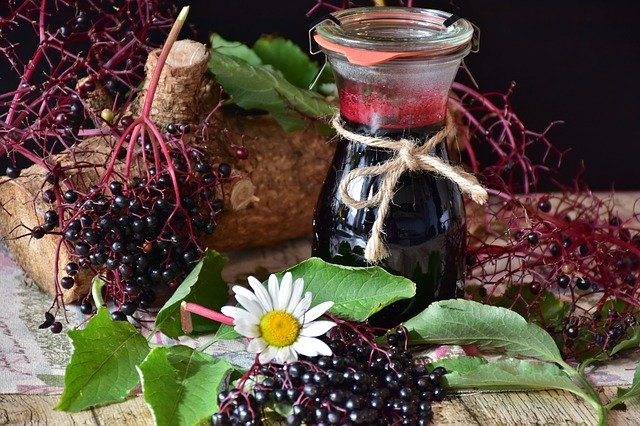The elderberry is a shrub or small tree native to the temperate regions of the Northern and Southern Hemispheres. Berries from the shrub range from black to grayish green. In some countries, it is often added to flavor syrups, wines, cordials and marmalades. Elderberry has also been used for therapeutic and nutritional purposes. Elixirs made with elderberry fruit have long been used to treat upper respiratory problems, mitigating the severity of symptoms. Like several other fruits and berries, there is a danger if the berry is eaten when unripe since it can contain cyanide.
Long recognized as a remedy for what ails you, there’s now scientific evidence to back up the claims. The first human clinical trial in the 1990s found that when used as a flu remedy, elderberry extract significantly reduces symptoms by approximately 50 percent when compared to placebo groups. In a 2004 study, the results were similar. Elderberry fruit is rich in phenolic and polyphenolic compounds that provide health benefits through antioxidant and immune functions that contribute to immune health. Eating the fruit doesn’t pack quite the immunity punch as the extract however, since the elderberry extract has a higher concentration of the elderberry’s beneficial components.
Article Source: http://EzineArticles.com/3851259











